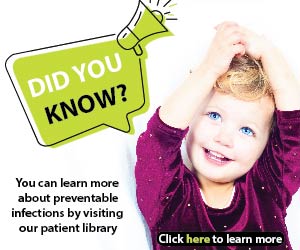Shingles - an affliction to avoid

If you are 50 years of age or more, odds are you have heard of shingles or you know someone who has experienced this notoriously painful condition. Not surprising, given that 90% of people over 50 are infected with the chickenpox virus, and are therefore at risk of developing shingles.1
Shingles, known medically as herpes zoster, occurs when the varicella zoster virus that causes childhood chickenpox is reactivated. The lifetime risk of developing shingles is 25% to 30%.2
While people of any age can develop shingles, the likelihood of being affected increases sharply after 50, as our immune defenses weaken and resistance to the dormant (inactive) chickenpox virus wanes. Because risk increases with age, approximately one in two adults 80 years of age or more have had or will have shingles.2,3
As well, older adults are more likely than younger adults to have a more severe case of shingles, and to experience pain that lasts long after the rash has cleared. Pain that persists for 90 days or more after the shingles rash first developed is known as postherpetic neuralgia (PHN). This complication may affect up to 30% of individuals who have shingles, and can persist long after the rash is gone.3
Shingles risk also increases for people whose immune system is weakened for other reasons – such as a medical condition like cancer, or use of immune suppressing medications – even prolonged or significant stress can reduce our immune response.2,4
Shingles symptoms vary
Shingles causes a painful, blistering rash – typically the blisters scab over in 7 to 10 days and the rash clears within 2 to 4 weeks. When it is mild, having shingles may be simply itchy and inconvenient. At its most severe, it can be painful enough to interfere with daily activities, turning the simplest acts like getting in and out of the car, putting on a shirt or bathing into a challenge.4,5
To learn more about shingles symptoms, complications, and prevention, visit the CDC website.
Get vaccinated!
Vaccination teaches the immune system to help protect the body by exposing it to either pieces of a virus or a weakened form of a virus, so it learns to recognize and defend against that disease in future.6 To understand more about vaccines and how they work, visit Immunize Canada.
Canadians now have two vaccines that help prevent shingles, Shingrix and Zostavax II.7 Being vaccinated not only significantly lowers the risk of developing shingles, it also may help to prevent potential complications such as nerve pain that affect some people who develop shingles.2,3
Vaccination is the best way to help protect against shingles. If you are 50 years of age or older,8 don’t delay – ask your healthcare professional whether you should consider shingles vaccination, and which one is right for you. And make sure your other adult vaccines are up to date. Visit Vaccines411.ca to find the shingles vaccine provider(s) closest to you.
Talk to your healthcare professional today about what immunizations you may need, and visit Vaccines411.ca to find the vaccinating clinic nearest you.
Brought to you by Vaccines411.ca – know where to go for your vaccinations.
This information should not be used as a substitute for the medical care and advice of your doctor. There may be variations in treatment that your physician may recommend based on individual facts and circumstances.
Read more Vaccines411® Articles 
Sources
Note: the hyperlinks that direct to other sites are not continuously updated. It is possible that some links become untraceable over time. Thank you.
- National Advisory Committee on Immunization. Statement on the Recommended use of Herpes Zoster Vaccine. January 2010, 36(ASC-1):1-19.
- Johnson RW. Herpes zoster epidemiology, management, and disease and economic burden in Europe: a multidisciplinary perspective. Ther Adv Vaccines. 2015 Jul; 3(4): 109–120.
- Kawai K, Gebremeskel BG, Acosta CJ. Systematic review of incidence and complications of herpes zoster: towards a global perspective. BMJ Open. 2014 Jun;4(6):e004833.
https://www.ncbi.nlm.nih.gov/pmc/articles/PMC4591524/ - NIH National Institute on Aging (NIA). Shingles.
https://www.nia.nih.gov/health/shingles - US Centers for Disease Control and Prevention. Shingles (Herpes Zoster): Overview.
https://www.cdc.gov/shingles/about/overview.html - Immunize Canada.
https://immunize.ca/what-immunization - Shapiro M. "Consider getting the shingles vaccine before 65: Doctors' Notes.” The Star. 29/01/2018.
https://www.thestar.com/life/2018/01/29/consider-getting-the-shingles-vaccine-before-65-doctors-notes.html - US Centers for Disease Control and Prevention. Shingles (Herpes Zoster): Prevention & Treatment.
https://www.cdc.gov/shingles/about/prevention-treatment.html



